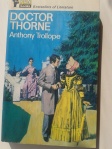 Okay, this title is a bit of a hostage to fortune: just how wonderful is my own Twitter bio? (I hear you ask). Well, you can check it out here. It may not be the most fabulous bio ever (in fact, it definitely isn’t), but several people have told me they’ve followed me after reading it, so hopefully it can’t be too terrible. (Incidentally, it’s been up for a while – more or less since I joined Twitter – so I should probably think about changing it soon).
Okay, this title is a bit of a hostage to fortune: just how wonderful is my own Twitter bio? (I hear you ask). Well, you can check it out here. It may not be the most fabulous bio ever (in fact, it definitely isn’t), but several people have told me they’ve followed me after reading it, so hopefully it can’t be too terrible. (Incidentally, it’s been up for a while – more or less since I joined Twitter – so I should probably think about changing it soon).
If you’re a writer I’m assuming you’re on Twitter to a) engage more people, b) get your name out there, and c) sell more books. If none of this applies, it probably doesn’t matter much what your bio is like. However, if you want to do any or all of the above, here are a few tips I’ve picked up from following (or choosing not to follow) literally hundreds of writers over the years.
By the way, I originally intended this to be just one post, but after it threatened to exceed the word count of War and Peace I decided to break it up. What follows here is Vol. 1.
1. Don’t just put the single word ‘writer’. A surprising number of writers do this – I always think it comes across as a bit arrogant: sort of a ‘and that’s all I’m going to tell you, you peasant’ attitude. So what kind of writer are you? What genre? What books have you written? What have other people had to say about them? The point about Twitter for writers is that it’s a fantastic, free way to engage with potential new readers – why should anyone care about you or your writing if that’s all you’ve got to say for yourself?
2. Bearing in mind the above, use the 160 characters you’re given, but please don’t make it 160 characters of concentrated sales pitch for your books. This is hideously boring to read and will almost certainly put off more people than it engages. People need to feel that they’re connecting with another human being before they’ll be interested in buying your books, so tell them something about yourself. What do you like doing/reading/watching/eating? I’ll always follow someone who says they like wine and/or chocolate, these being two of my own (guilty) pleasures. Or your passion might be hill-walking or snorkelling or cats or anything, really – just let the reader know a little bit about you. NB: as with most things, you can overdo this. You probably won’t impress people with a long list consisting of boasty things like off-piste skiing, sailing in your own custom-built yacht, collecting Hermes Birkin bags etc – unless you do it wittily (see below).
3. A little humour is great if you can manage it (in other words, if it doesn’t sound forced). Don’t worry if you’re not Oscar Wilde: I personally find witty aphorisms (or attempted wittiness) more off-putting than appealing – and I’m sure I can’t be the only one.
4. Alliteration is memorable and engaging (there’s a reason headline-writers and poets use it). Again, don’t force it.
5. The opposite of relentless pitching is not mentioning your books at all. One very well-known chick lit author I’ve come across doesn’t say anywhere in her Twitter bio that she’s a writer. Probably you can get away with it if you’ve sold as many books as her (and have thousands of followers already), but for the rest of us this is your chance to mention (just casually), that you’ve written a book or books, and what they’re about. Do this at the end: remember, you’re not ramming your books down people’s throats.
Vol.2 (more tips, including examples) coming along shortly!
